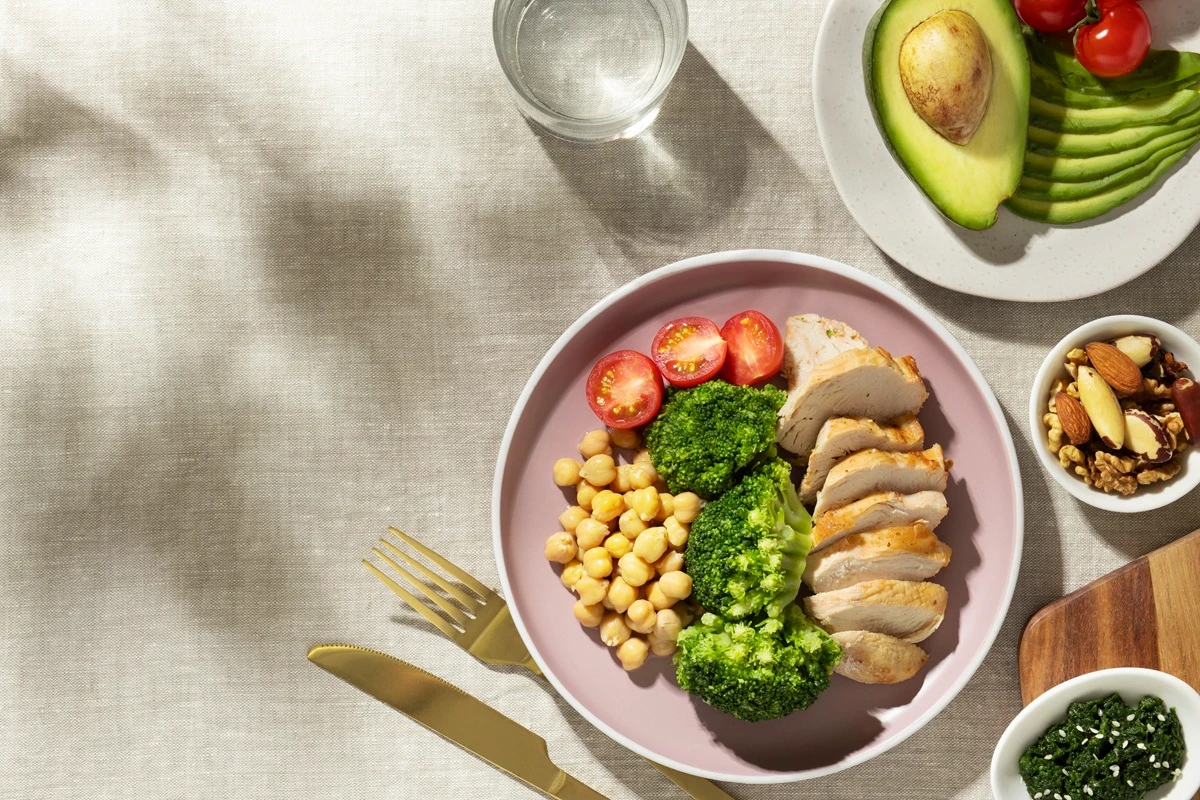High Protein Foods for Muscle Gain: The Ultimate Guide 🥩🥚💪
Building muscle isn’t just about lifting weights — it’s also about fueling your body with the right nutrients. Protein is the cornerstone of muscle growth, recovery, and strength. Whether you’re a gym enthusiast, athlete, or simply trying to improve your physique, incorporating high-protein foods into your diet is essential.
In this guide, we’ll explore the best high-protein foods for muscle gain, explain how they work, share meal ideas, and answer common questions to help you maximize results.
🔑 Why Protein is Essential for Muscle Growth
Protein is made up of amino acids, often referred to as the “building blocks” of muscles. When you lift weights or perform resistance training, your muscle fibers experience tiny tears. Consuming protein helps repair and rebuild these fibers, making them bigger, stronger, and more resilient.
Key benefits of protein for muscle gain:
- Supports muscle repair and growth
- Boosts recovery after workouts
- Helps maintain lean muscle mass while losing fat
- Keeps you full longer, reducing cravings
👉 The average person aiming for muscle gain should consume 1.6–2.2 grams of protein per kilogram of body weight daily.
🥗 List of the Best High-Protein Foods for Muscle Gain
Here’s a detailed breakdown of protein-rich foods you should add to your diet:
1. Chicken Breast 🍗
- Protein: 31g per 100g
- Why it’s great: Lean, low in fat, and versatile for meal prep.
- Meal idea: Grilled chicken with quinoa and steamed broccoli.
2. Eggs 🥚
- Protein: 6g per egg
- Why it’s great: Complete protein with all essential amino acids.
- Meal idea: Omelet with spinach and cheese.
3. Greek Yogurt 🥛
- Protein: 20g per cup (200g)
- Why it’s great: High in protein and probiotics for gut health.
- Meal idea: Greek yogurt parfait with berries and almonds.
4. Salmon 🐟
- Protein: 25g per 100g
- Why it’s great: Packed with omega-3 fatty acids, reducing inflammation.
- Meal idea: Baked salmon with brown rice and asparagus.
5. Lean Beef 🥩
- Protein: 26g per 100g
- Why it’s great: Rich in iron, creatine, and vitamin B12.
- Meal idea: Beef stir-fry with vegetables and whole grain noodles.
6. Cottage Cheese 🧀
- Protein: 11g per 100g
- Why it’s great: Slow-digesting casein protein, perfect for nighttime recovery.
- Meal idea: Cottage cheese with pineapple or mango.
7. Whey Protein Powder 🥤
- Protein: 24g per scoop (30g)
- Why it’s great: Fast-absorbing and ideal post-workout.
- Meal idea: Blend with banana, oats, and milk for a protein shake.
8. Tofu (Plant-Based) 🌱
- Protein: 8g per 100g
- Why it’s great: Great for vegetarians/vegans; contains calcium and iron.
- Meal idea: Tofu stir-fry with soy sauce and sesame oil.
9. Lentils 🍲
- Protein: 18g per cup (cooked)
- Why it’s great: High in fiber and minerals like magnesium.
- Meal idea: Lentil soup with carrots and celery.
10. Tuna (Canned in Water) 🐟
- Protein: 28g per 100g
- Why it’s great: Affordable and protein-dense.
- Meal idea: Tuna salad sandwich with whole-grain bread.
11. Quinoa 🌾
- Protein: 8g per cup (cooked)
- Why it’s great: Complete plant-based protein with fiber.
- Meal idea: Quinoa bowl with beans, avocado, and chicken.
12. Edamame 🌱
- Protein: 11g per cup
- Why it’s great: Snack-friendly and nutrient-rich.
- Meal idea: Lightly salted steamed edamame.
13. Turkey Breast 🍖
- Protein: 29g per 100g
- Why it’s great: Lean, high-quality protein for mass building.
- Meal idea: Turkey breast sandwich with avocado and tomato.
14. Almonds 🌰
- Protein: 6g per handful (~28g)
- Why it’s great: Packed with protein, fiber, and healthy fats.
- Meal idea: Almond snack mix with dried fruits.
15. Shrimp 🍤
- Protein: 24g per 100g
- Why it’s great: Low calorie, high protein, and rich in selenium.
- Meal idea: Garlic shrimp with zucchini noodles.
📊 Quick Comparison Table of High Protein Foods

🍴 How to Incorporate High-Protein Foods into Your Diet
- Meal prep: Cook chicken, beef, or tofu in bulk.
- Snacking smart: Keep almonds, protein bars, or Greek yogurt handy.
- Balanced meals: Pair proteins with complex carbs (brown rice, oats) and healthy fats (olive oil, nuts).
- Post-workout shakes: Quick and effective way to hit protein goals.
🏋️♂️ Pro Tips for Maximum Muscle Gain
- Spread your protein intake evenly across meals.
- Don’t rely only on supplements — focus on whole foods.
- Pair protein with carbs post-workout for better recovery.
- Stay hydrated to aid digestion and absorption.
- Get 7–8 hours of sleep — that’s when muscle repair happens!
❓ FAQs about Protein and Muscle Gain
Q1: Can you build muscle without protein powder?
👉 Yes, whole foods like chicken, beef, fish, and lentils are enough if your diet is well-structured. Protein powder is just a convenience.
Q2: Is too much protein harmful?
👉 Consuming more than 2.5g per kg body weight consistently may stress kidneys in some individuals. Stay within recommended limits.
Q3: What’s the best time to eat protein?
👉 Spread throughout the day, but especially after workouts for muscle recovery.
Q4: What about vegetarians or vegans?
👉 Plant-based proteins like tofu, lentils, quinoa, and edamame are excellent options. Combine different sources for a complete amino acid profile.
✅ Conclusion
Eating the right high-protein foods for muscle gain can significantly enhance your training results. From classic chicken breast to plant-based options like tofu and lentils, there’s a protein source for everyone. Combine these with smart meal planning, regular training, and proper recovery, and you’ll be on your way to building a stronger, leaner physique. 💪




Leave a Reply